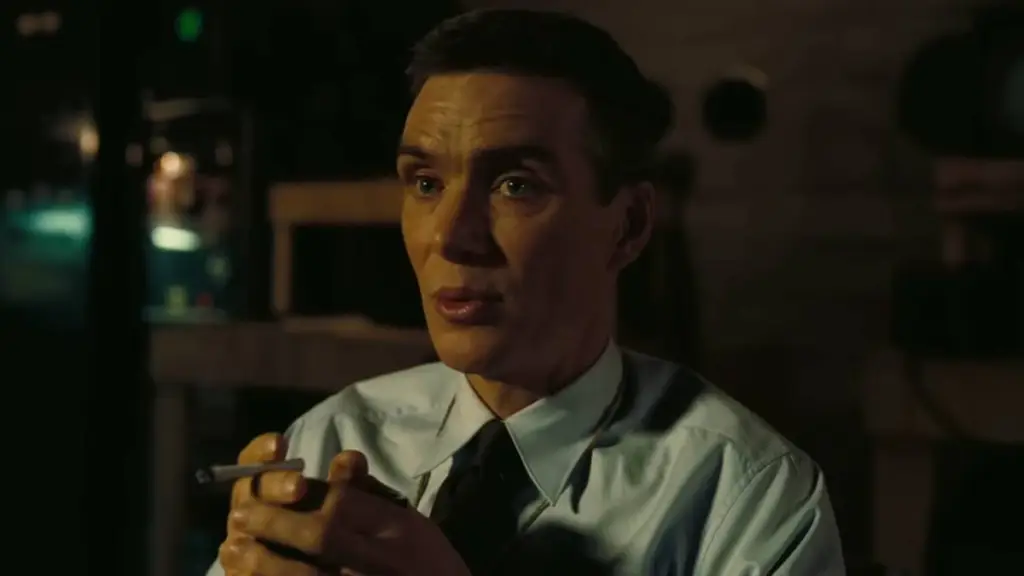Christopher Nolan has created a film about creation. Oppenheimer tells the story of J. Robert Oppenheimer, the director of the Manhattan Project in World War II, who would eventually become known as the father of the atomic bomb. This biographical thriller stars Cillian Murphy as the titular character in one of the most profound, terrifying real-life stories about the man who gave humanity the power to destroy themselves. This is an edge-of-your-seat cinematic experience like no other, with Nolan tapping into something uniquely brilliant.
This is Nolan’s second movie surrounding World War II, with the first being Dunkirk in 2017. Although these movies take place in the same period of history, they could not be any more different. Dunkirk was a war movie that followed a thrilling evacuation, but this movie takes things away from the battlefield. This is a movie about the scientists who brought the war to an end in a horrifying fashion. Oppenheimer is a 3-hour epic that follows our lead from his beginnings as a talented, somewhat troubled scientist who wants to make a difference in the world. He’s the person who learned Dutch in six weeks to give a lecture on it and also poisoned an apple given to a tutor he had a complex relationship with.
In every way, Oppenheimer is a standout in Nolan’s career. If you think about the movies he’s made over the past few years, like The Dark Knight trilogy, Inception, Interstellar, and Tenet, you’ll see he makes high-concept action movies with gorgeous spectacle. Dunkirk was a war movie with practical explosions and planes. Nolan is not using that toolbox with this movie. He tells his most grounded story since The Prestige. He’s not creating a typical blockbuster; this is a dialogue-driven, history-heavy movie about how Oppenheimer became death, destroyer of worlds.
Without too many dazzling visuals or action sequences to wow the audience, Nolan is left with the most performance-driven film of his career. He needs a talented cast to do it, and he has assembled one of the best ensembles of the year. Cillian Murphy has appeared in many of Nolan’s movies but never as a leading man. He gets to take the reigns in what may be a career-best performance from him. The way Murphy conveys so much with a facial expression and the way Nolan chooses to linger on him for just the right moment to get a sense of what’s going through his head is superb. Through his eyes, we see hesitation, regret, guilt, and a deep knowledge of his craft.
Robert Downey Jr. is phenomenal in this movie. This performance is a “Stark” contrast from his previous roles, as he portrays Lewis Strauss, an antagonistic figure in Oppenheimer’s story. He speaks differently from how you’re used to hearing him, and he proves that he is not just the witty, charismatic hero we’ve seen many times. Matt Damon and Jason Clarke should also be singled out for their magnificent work in this movie. Emily Blunt and Florence Pugh are excellent in their fleeting screen time, but they are the only female characters in the movie, and they don’t have nearly enough nuance to them on the page.
It’s telling how Nolan’s scariest movie is a real-life event. This film has you so wrapped up in the situation that you forget you’re watching actors. It’s his most thematically mature movie in a while, with this being his first R-rated movie in over 20 years. The exquisite sound design allows you to feel the looming danger. However, this is also Nolan’s most dialogue-heavy movie, which can feel tedious at times. The strongest elements of this movie are the moments where he goes more psychological, adding a horror aspect with the immersive soundscape and a ticking clock that isn’t always clear but works effectively for the story.
There’s a scene in this movie that serves as a remarkable achievement for the characters while also being mortifying under the surface. It is quickly followed by a scene that looks and feels like the fist-pumping happy ending of a movie. The juxtaposition between these scenes is clever, especially because in a story of one of humanity’s darkest chapters, there can be no truly happy endings. It’s a shame that, like most of Nolan’s work, this movie is more heavily based in story than character because a few more character moments could have made this movie drastically better.
Regardless of the rough edges, Oppenheimer is a tour de force from Nolan. A cinematic achievement where he takes a dramatic real-life story and makes it into a movie that must be experienced on the big screen. I saw this movie in 70mm IMAX, and I would encourage anyone who can do the same. Hoyte van Hoytema’s gorgeous cinematography, matched with Ludwig Göransson’s breathtaking, Oscar-worthy musical score, cannot be missed. This is a movie about a man dealing with the consequences of his actions and his raw guilt over the culmination of his life’s work. It is a story about creation, and with that creation, the inevitable destruction.
SCORE: 8/10
As ComingSoon’s review policy explains, a score of 8 equates to “Great.” While there are a few minor issues, this score means that the art succeeds at its goal and leaves a memorable impact.
Disclosure: ComingSoon attended a press screening for our Oppenheimer review.










